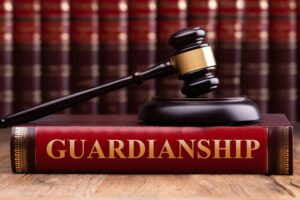Guardianship as a Protective Mechanism in Estate Planning Decisions in NJ
Learn About the Roles And Responsibilities of Legal Guardians in Personal and Estate Matters with the Guidance of Our Team of Attorneys

Guardians in both contexts have specific roles and responsibilities they must fulfill on behalf of the best interests of the person for whom they are appointed. Contact Bronzino Law Firm today by calling (732) 812-3102 to learn more about how we can support you in the process of becoming a legal guardian, and read on to learn more about guardianship in Lacey, Red Bank, Wall, Ocean Township, Manasquan, Bay Head, Berkeley, Monmouth Beach, and communities across Monmouth and Ocean County, both of estate and of person.
Guardianship to Ensure Decision-Making for Individuals Unable to Advocate for Themselves in NJ
A person who is unable to make decisions for themselves may need a guardian. If their inability to get their needs met places them at risk, and the court deems that there is no less constraining way to get their needs met, the court may appoint a legal guardian of the person. This could include a minor whose parents are not living, a young adult or adult with special needs or cognitive disability, or an elderly person.
Guardian of the Person and Guardian of the Estate
A person can be court-appointed as a guardian of the person or guardian of the estate. A guardian of the person embodies the traditional form of guardianship. This person has the legal right and responsibility to make sound decisions regarding their ward’s medical care, residence, legal needs, and well-being. A guardian of the property or estate manages the financial elements of the person’s estate, ensuring that their affairs and legacy are protected. This type of guardianship, often referred to as limited guardianship, includes overseeing their banking, assets, investments, bills, retirement funds, and trusts.
Guardianship of a person is the legal process by which the court appoints a guardian to make legal, financial, medical, and other decisions for a person who is deemed incapable of doing so for themselves, as may be the case for an elderly parent or special needs adult.
Process for Guardianship Nominations in NJ
The family can nominate any competent individual to serve as a guardian of a person or property. Under New Jersey state law, a spouse receives priority in guardianship nomination, followed by children if the spouse cannot or will not serve as legal guardian. However, the court reviews such nominations very strictly, as the ruling to pass someone’s legal, medical, or financial decision-making authority is a very serious matter. During a guardianship hearing, the person seeking legal guardianship bears the burden of proving that the individual in question is incapable of making sound decisions for themselves. If the judge confirms incapacity and appoints the guardian, they then must qualify with the county surrogate.
Main Roles of the Guardian of the Person
A guardian of the person has many responsibilities. These include overseeing their ward’s medical care, protecting the person’s estate and managing their various financial affairs, tending to their education if they are of that age, determining where the person will live, overseeing who will visit the person and what activities the person will participate in, and most importantly, advocating for the person’s independence by including them in as much of the decision-making processes as possible.
 Initiating the Guardianship Process Under NJ Law
Initiating the Guardianship Process Under NJ Law
The guardianship process begins when two doctors provide reports that the person in question is incapacitated, meaning that they are unable to make sound decisions regarding their medical, legal, and financial well-being. Within a month of receiving the first report, the person petitioning for guardianship must file a Complaint and Order to Show Cause and provide supporting documentation with the Surrogate’s Court. The court will set a date for the hearing and appoint an attorney for the allegedly incapacitated person. During the hearing, a judge will hear evidence to determine whether the allegedly incapacitated person does indeed need a guardian, and whether the petitioning individual is the appropriate guardian for the ward’s best interests.
Contact Our Sea Girt Attorneys to Provide Assistance with Your Guardianship Questions
Guardianship cases are sensitive matters because awarding legal decision-making authority for one’s medical, financial, and legal well-being is a very serious determination that the Superior Court does not take lightly. If your loved one needs guardianship, our team at Bronzino Law Firm, LLC can help ensure that their best interests are protected.
We bring a great deal of experience successfully representing the best interest of young and old people requiring guardianship in Lavallette, Neptune, Stafford, Rumson, Ship Bottom, Jackson, and other towns throughout Monmouth and Ocean County, NJ. Contact us today at (732) 812-3102 to schedule a free consultation regarding your loved one’s needs.


 Initiating the Guardianship Process Under NJ Law
Initiating the Guardianship Process Under NJ Law




